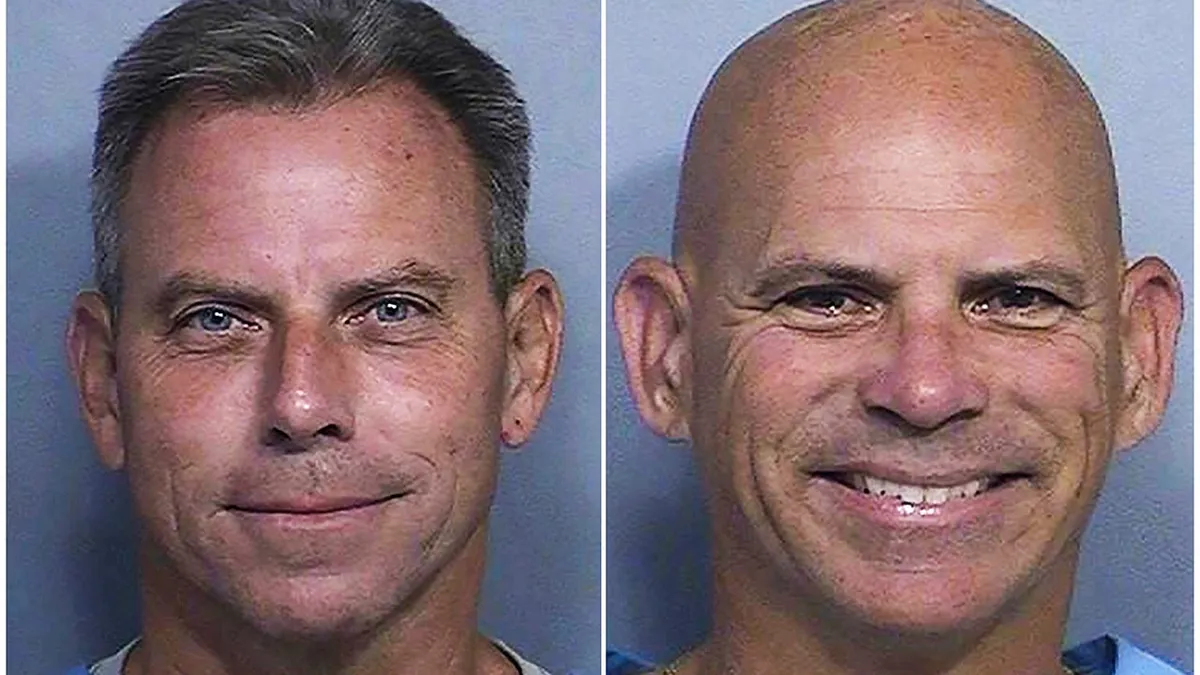
On Monday, Los Angeles District Attorney Nathan Hochman announced his intention to withdraw the motion initiated by his predecessor, George Gascon, regarding the resentencing hearing for the Menendez brothers, Erik and Lyle. The brothers, who were convicted of murdering their parents in 1989, are currently serving life sentences without the possibility of parole. Hochman stated that the brothers have not shown any genuine self-reflection or admitted to their motives, which he believes disqualifies them from being considered for resentencing.
During a press conference, Hochman emphasized that the Menendez brothers' defense of self-defense is a fabrication. He argued that they must acknowledge this false narrative, which has been a cornerstone of their defense for over three decades. Despite having exhausted all legal appeals, a recent change in California law now allows for resentencing hearings, potentially paving the way for the brothers to be considered for parole if their sentences are reduced.
Hochman criticized the brothers for what he described as a pattern of dishonesty concerning their case, their deceased parents, and their interactions with witnesses. He pointed out that jurors had previously rejected their claims of self-defense during the original trial.
In response to Hochman's comments, relatives of the Menendez brothers expressed their frustration, accusing the DA of holding the family "hostage." They argued that Hochman is ignoring the trauma and abuse the brothers endured, insisting that they have taken steps to atone for their actions. The family's statement questioned how many times they would have to relive the painful past instead of focusing on who the brothers are today.
According to an 88-page filing from Hochman's office, the planned resentencing hearings were scheduled for March 20 and 21. However, Hochman intends to formally request the court to withdraw the initial motion for resentencing filed under Gascon. The basis for this request centers on the assertion that the prior motion failed to consider whether the Menendez brothers have genuinely accepted responsibility for their actions.
The DA outlined the brutal details of the murders, stating that the brothers killed their parents, Mary Kitty Menendez and Jose Menendez, using shotguns in their Beverly Hills home. Hochman contended that the brothers staged the crime scene and have persistently lied about their motivations, including claims that their father was a child sex abuser.
Hochman noted that there is a potential pathway for the Menendez brothers to qualify for resentencing. He stated that if they were to fully accept responsibility for their actions, acknowledge the falsity of their self-defense claims, and come clean about their past lies, the court could then consider these insights in its determination of their eligibility for rehabilitation and resentencing.
If the brothers refuse to take this path, Hochman affirmed that they do not deserve a reduction in their sentences. The upcoming hearings have been postponed following the recent election of Hochman, who has since taken a different approach to the case than his predecessor.
The Menendez brothers are also exploring other avenues for potential release, including seeking clemency from California Governor Gavin Newsom and filing a habeas petition for new trials. Since their conviction, numerous family members, including Kitty's sister Joan Andersen VanderMolen, have publicly supported the brothers' bids for freedom, while others, like Milton Andersen, have opposed it vehemently.
Milton Andersen, who passed away recently at the age of 90, had been a vocal critic of the brothers' claims of abuse, asserting that the jury's original verdict and sentencing were justified. His attorney shared that Milton appreciated DA Hochman's willingness to engage with him during his final days, emphasizing the importance of understanding and compassion in such complex cases.
The ongoing saga of the Menendez brothers continues to evoke strong emotions and divided opinions among family members and the public alike, as the legal system grapples with the implications of their past actions and the possibility of their future release.